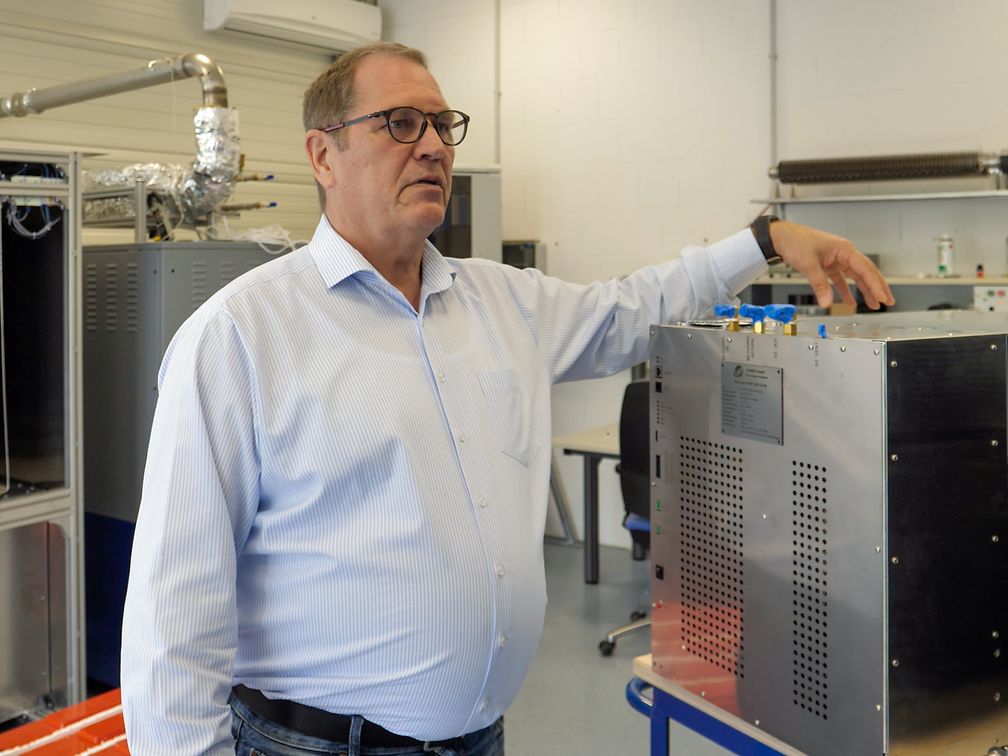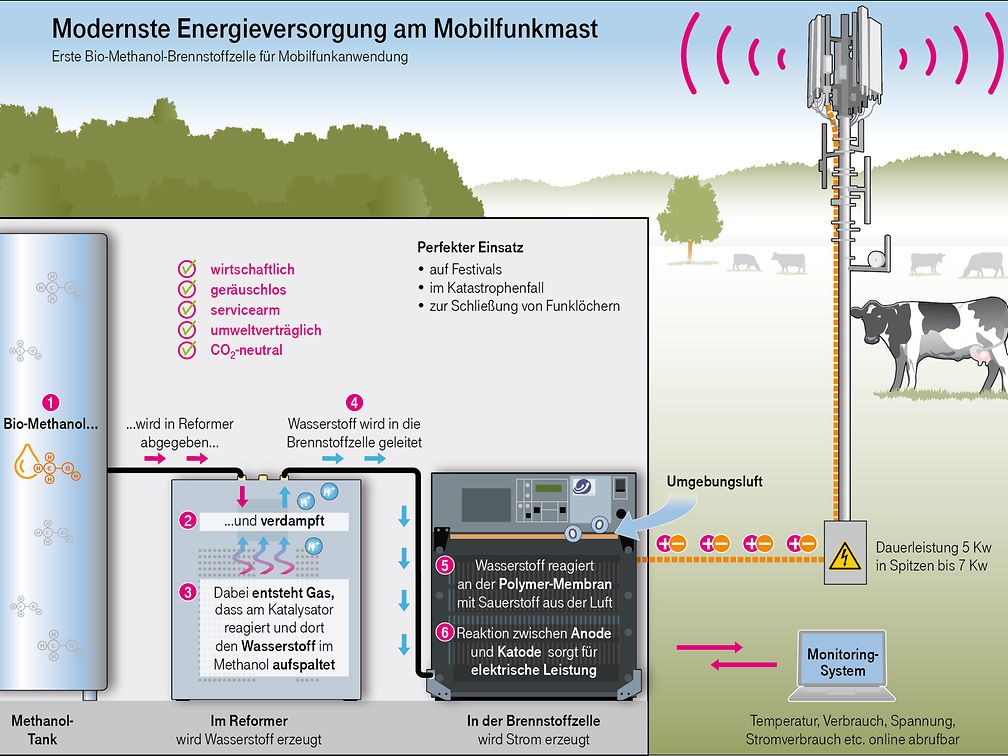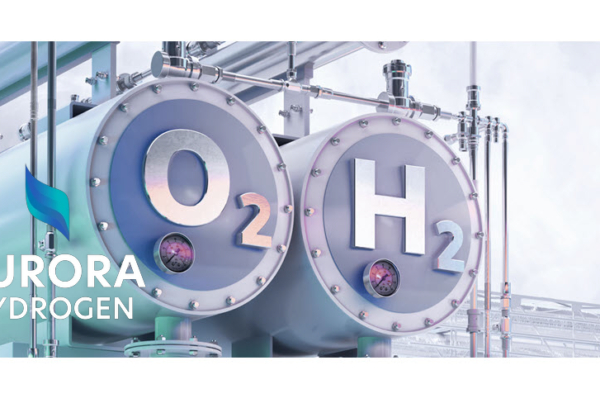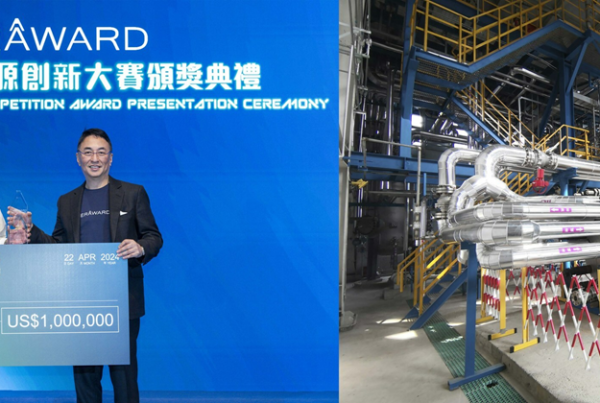
When a mobile telephone system is built in a remote location, it often needs power generators. So far, they have been running on diesel, but now there is an alternative: hydrogen fuel cells
In the district of Euerfeld, probably the world’s first mobile phone mast goes into operation, which is supplied with power by a fuel cell.
This climate-neutral location closes a “dead zone” coverage area – economically, quietly, with low service and environmentally friendly.
Niklas Schmitz of the German subsidiary PASM (Power and Air Condition Solution Management), which cares about the energy supply of the telecommunications systems, knows that the diesel power is not always the ideal solution: “The diesel generator may have to run continuously for over two weeks and often one does not even come to the location because, for example, the area is not passable.
The fuel cell, on the other hand, can generate much more energy as an electrochemical system and requires less maintenance. “It is supplied with bio-methanol in Dettelbach, which is produced from biomass – for example from plant waste, wood or straw.” This is how we operate the plant CO2-neutral here, “explains expert Niklas Schmitz.
How a fuel cell works for mobile communications
For years, the fuel cell drive has been considered a highly interesting alternative to combustion engines or conventional electric cars à la Tesla with their extremely heavy batteries. Thus, the Toyota Mirai creates a tank of hydrogen up to 500 kilometers and can be filled up in three minutes. Nothing comes from the exhaust – except water vapor.
And this environmentally friendly technology of the future also works without a car, for example at the new Telekom mobile communications system in Lower Franconia. The manufacturer of the fuel cell, which is used there, are the hydrogen specialists from HYREF, who are based at a former colliery in Herten in the district of Recklinghausen.

Klemens Höbing, Managing Director HYREF GmbH
Managing Director Klemens Höbing explains how the process works, which essentially requires two steps. First, the bio-methanol is introduced into a kind of large vessel called “reformer”. “The gas that is produced reacts on a catalyst, and this reaction ensures that the hydrogen that attaches to the methanol is split.”
Thus, the hydrogen is generated, which reacts in the second step in the actual fuel cell with the oxygen from the ambient air. It works much like a battery. This generates heat, water – and especially the electricity that an electric car or even the mobile radio in Dettelbach need for their operation. However, the fuel cell is not a perpetuum mobile, because energy is needed to move from methanol to electricity. Therefore, this electrochemical reaction, also called “cold combustion”, is especially environmentally friendly, especially when the required energy comes from renewable sources.
“Mobile Hydrogen” is a clever solution
The tank, which supplies the plant in Dettelbach, holds 3,000 liters of bio-methanol. “With this we can realize almost a nine-month continuous operation”, reveals hydrogen expert Klemens Höbing. The system delivers a continuous power of 5 kW and, if required, a peak power of 7 kW. And this virtually maintenance-free – while a diesel generator must be regularly filled with fuel or supplied with lubricating oil.

This is how the mobile radio location works with a fuel cell.
Also, a fuel cell does not have any moving parts such as pistons or gears that can break and cause noise or vibration. To see if everything is alright, the telecom technicians no longer trudge through a muddy meadow, because they can monitor the system via remote maintenance.
By the year 2030, Deutsche Telekom plans to reduce its CO2 emissions by 90 percent. And by 2021, the group wants to rely 100 percent on renewable energy. The mobile masts with the hydrogen technology can be an important component, because they solve one of the biggest problems that are currently in the development of mobile networks, namely the environmentally friendly power supply in locations in remote areas.
The video gives even more insights into the fuel cell and the mobile hydrogen solution for Deutsche Telekom
Read the most up to date Fuel Cell and Hydrogen Industry news at FuelCellsWorks




